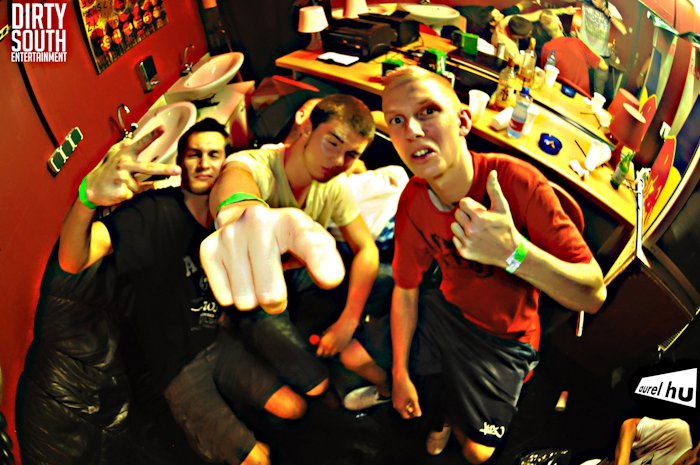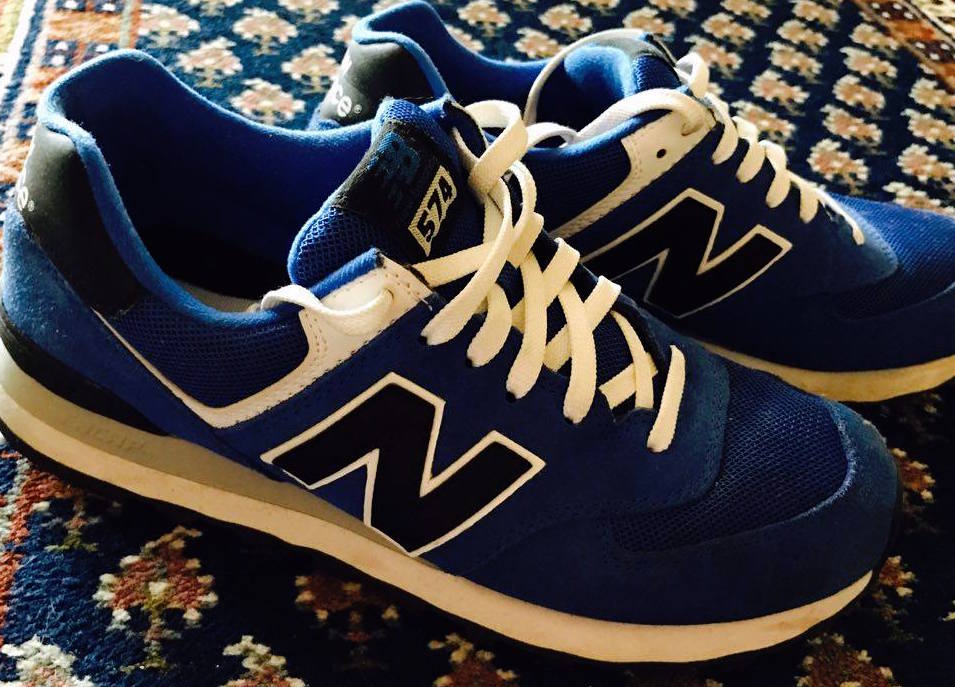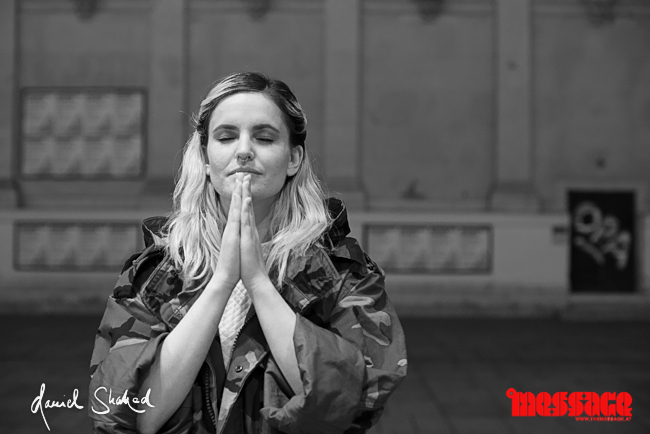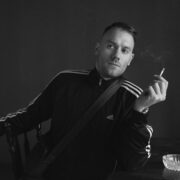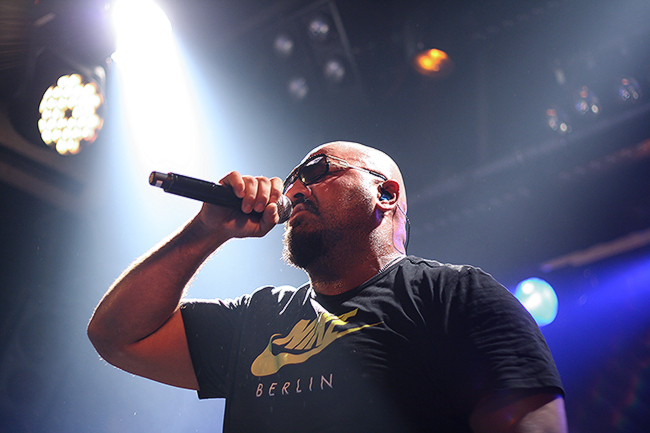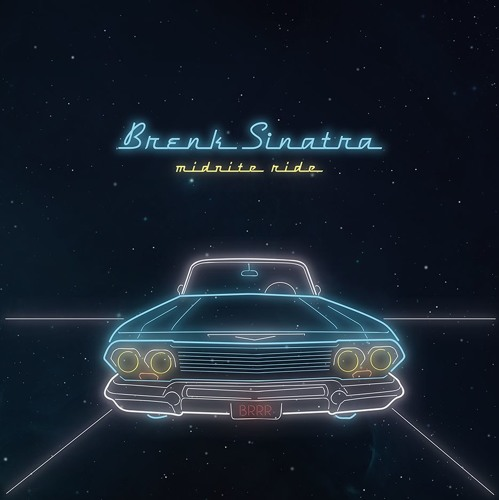"The hardest thing to do is something that is close…
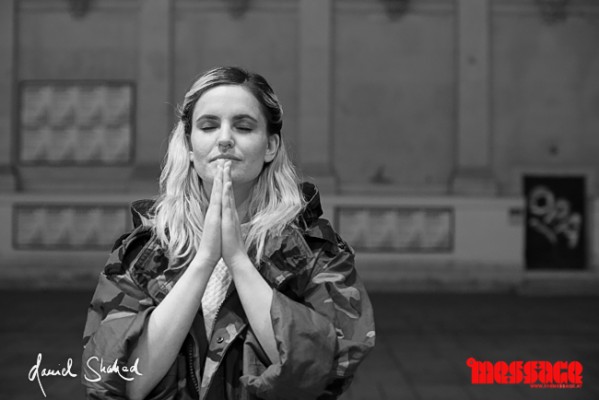
Die Musikszene in Israel brachte in den vergangenen Jahren einige Künstler hervor, die international für Furore sorgen: Neben den Goa-Helden Infected Mushroom, in deren Kehrwasser Dutzende weitere Vertreter des psychedelischen Trance ein ganzes Subgenre für sich reklamieren, und Folk-Sänger Asaf Avidan, dessen „Reckoning Song“ sich zumindest in der Wankelmut-Version für immer in die Hirnzellen eingeschrieben hat, bietet auch die urbane Szene einige hochinteressante Protagonisten auf. Adi Ulmansky gehört zweifelsfrei in diese Kategorie. Mit ihrem genreüberschreitenden Electro-Mix trifft sie perfekt den Zeitgeist. Zudem besitzt sie den nötigen textlichen Mut, indem sie sich an Themen heranwagt, die viele nicht einmal zu streifen wagen. Anlässlich ihres Gigs beim Waves Vienna-Festival treffen wir das bestens gelaunte „Hurricane Girl“ zum Interview. Dabei rollen wir nicht nur ihren Szene-Background auf, sondern befassen uns auch mit der Situation als Musikerin in Israel sowie ihrer Mission, die sie zuletzt in „Pink Pillz“ zum Ausdruck brachte. The next big thing, here we go.
Interview: Thomas Kiebl & Daniel Shaked
Fotos: Daniel Shaked
The Message: Recently, you have released a new track called „Pink Pillz“, that tackles the topic of depression. How difficult was it for you to write that song?
Adi: One year ago, I played a show in Canada, at the CMW (Canadian Music Week, Anm.), and when I talked to some of the musicians there, they were really surprised when I told them that I’m going to miss my meetings with my psychologist in Israel this week. They were really shocked and asked me about my problem, and what was wrong with me. That was the moment when I realized that people in other countries approach in different ways to this issue. The society in Israel is very open minded regarding these things. For me, it feels so weird that people don’t talk about it. Because it’s normal nowadays, everyone suffers from some kind of mental problems. It should not be a big deal to see a psychologist. Writing that song I just I wanted to bring that up and talk about it in an open way. Some people also have to take pills, not because they are crazy, but they have to balance some shit. And I’m talking about myself. I went through really shitty periods in my life and I was like: “Why do I need to suffer? I can balance some of the hormones in my body”. But that’s just one reason for it I guess, it is also my psychotic brain [laughs]. And I know that it’s a problematic issue to talk about but I really felt that it is my mission to bring it up and talk about it.
Why do you think that it is still problematic for people to talk about it?
Generally, which is very wicked for me, I think people prefer to show that they are good, pretty, smart and that their life is a dream. You just have to look at different profiles on Instagram. Everyone wants to show how good his life is. But that’s not the reality – so why don’t you post a picture at a moment in your life when you are feeling down? There was a period in my life, about a year ago I started posting a picture every day when I was in a really shitty situation. I was fighting with my boyfriend, crying to death, and taking pictures of myself. I have to say that it was hard for my to upload it. But yeah, I think that people only want to hear something about your amazing life, not about your problems. Until they see themselves in such a situation. And that is the moment where musicians have the power. All the music I grew up was amazing music – Radiohead and that stuff – but it was all about feeling depressed, feeling lost. But I found comfort in their music.
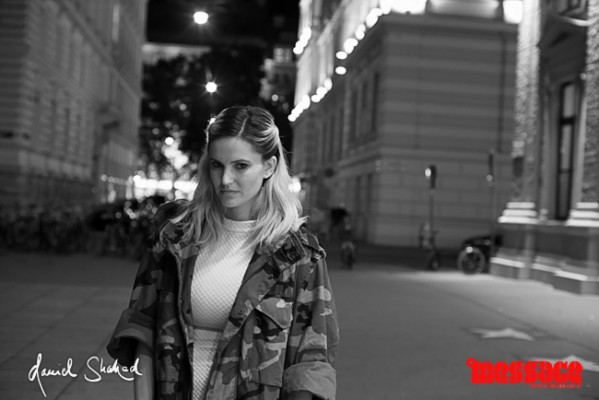
What was the music you were growing up to?
Radiohead was the main thing. Also, I used to listen a lot to Björk. It’s interesting because I grew up listening to rock and metal bands and then it changed to Radiohead and Björk to then change to hip-hop. And I’m still in that phase. I hope that I’m not going to change again [laughs]. The first rapper I was listening to was Eminem. I know, I am white and it is funny to say, but that’s the truth. He was the first rapper I felt related to. He had so much fucking anger in his lyrics. That was the first time I heard somebody rapping about killing his girlfriend and I could relate to that song. Which is weird if you say that to your boyfriend [laughs].
You din’t listen to Wu-Tang and that stuff before?
You have to know that in Israel, it’s like a bubble. We don’t get exposed to the music like the Europeans and the Americans. Also the live shows, which happen about ten years later in Israel, when the artist is already dead, when he is not relevant in any ways. But we had Kanye West in Israel yesterday [laughs]. That was a fucking big deal! But before Eminem and that stuff, I was something like a “pop girl”: I listened to Spice Girls and that stuff. When I got older, I was in a moody, depressed phase, and at that time, I was into Metal, Pantera etc. And I played the guitar for five years and so.
Were you in a heavy metal band?
Yeah, but in shitty bands. Local, shitty, bands [laughs].
The situation for a heavy metal band seems to be difficult in Israel, I guess.
People don’t like it very much. But we didn’t really release anything. We just had live shows for people who were into the same thing. But the community in Israel is extremely tiny. There’s only one metal band from Israel that is really successful, Betzefer. And they get most of their success in Arab countries. Really weird, if you think that most of the time Israelis don’t go to Arab countries.
What was the most interesting thing for you in heavy metal?
That we can say the worst things we could imagine and that stuff. We all shared the same angry emotions and feelings, we wore black clothes and so on.
All this happend in Jerusalem?
Yeah, in Jerusalem. And that is not really common in Jerusalem. I din’t grow up in the centre of the religious part of the city, it was at the relaxed country-side. But I think Jerusalem influenced me to do things that are not acceptable. Because the city is so tied up. You can’t dress how you want and so on. Tel Aviv is the complete opposite of Jerusalem, you are allowed to do everything you want there. Growing up in Jerusalem, you only have two possibilities regarding the strict religious environment: you can accept or fight it.
How do you get your connection to the music scene in Tel Aviv?
It took me quite a while. I started performing in Jerusalem. But you have to go to Tel Aviv because that’s the main culture city. So I moved to Tel Aviv when I was 23 and I struggled for almost three years. It was really hard to find myself. And still, I mean I love Tel Aviv and I enjoy that city, but I always feel that I am that girl from Jerusalem that is more uptight and a little bit more conservative. For example, I never go to the beach, that’s not my thing. I am not into that “I am on the beach all day, wearing nothing, enjoying the sun” . I guess that’s why I feel so good in Europe, because it’s so cold there. Jerusalem is also quite cold. I feel like home in Europe [laughs]
When we talked about rap music: Have you never listened to rap music from Israel? 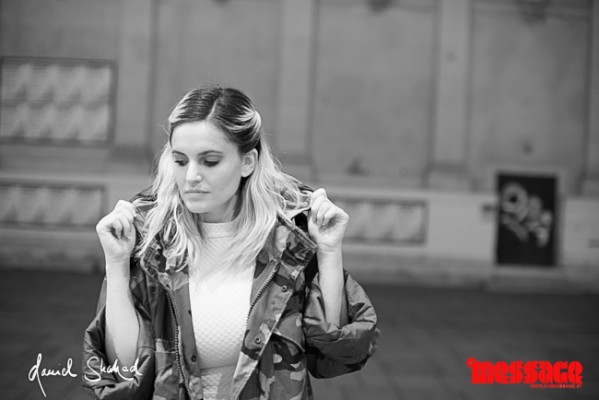
I know that this is not the nicest thing to say but I could never relate to the hip-hop scene in Israel. Only in the last few years, it got really, really cool. It took us a while to get new producers and a new sound. Before that, everything felt so old, trying to be something that happened fifteen years ago. Then, things changed. There was one band that I loved. It was a hebrew band called Shabak Samech. They were really cool. That was the main thing back in the days. Now, there are many acts from Israel that I really like.
For example?
There is this rapper/R’n’B-singer Ben Blackwell, I love him, he’s amazing. There is this really cool rapper called Cohen, he raps in hebrew. He is also an awesome producer. And of course the Raw Tapes people, I love them. They are really close friends. I think that they took the whole music scene in Israel a few steps forward with making fresh stuff. They were a big part of the change, especially in the rap scene. But regarding the music scene as a whole, you have to mention Asaf Avidan. Because finally, we had a Israeli guy signing in English – which was not very common – that becamce an international star.
What is the role of the Ethiopians in Israel’s hip-hop-scene?
It only started a year ago, and now, we have only two really successful artists that are from Ethiopia. And Ester Rada, she’s not in the rap scene, but she’s amazing. The whole thing started with this really successful artist called Idan Raichel. He took a few Ethiopian singers for his project, and with being a part of his project, they received media coverage and were played on the radio all the time. This was the first time that the Ethiopian community received media presence and focus.
But they needed someone who is outside the Ethiopian community to get this media presence.
Yeah and the sad part of it is that after a while they realized that Raichel had used and not paid them. At least some great music emerged and their community received attention in the media, which is not something that happens very often. Although I think that this is getting better.
The music scene in Israel seems to be small.
The scene in Israel is tiny. It is getting bigger, but at the moment, it is tiny.
From a European perspective, the outcome seems to be high, although the scene is tiny.
If you live so far away from Europe and the USA and everything is so small, you have to really, really push. That’s how I feel about my music, that I have to push all the time. Because it is not so easy to go on tour, it cost a lot of money. It is also a part of the culture – people in Israel have that forward approach, if they want to do something, they do it. That can be helpful in some ways to push forward. It’s also something that the younger generation has. They have the selfesteem for going abroad and doing their thing. But with the internet you don’t have the necessity to move. People are often asking why I don’t move to London. It’s not that I don’t want to move, but I don’t think that this is necessary. I can be on tour all the time, go everywhere I want. It’s not easy and cheap, but it’s possible. With the internet you don’t have to go to London.
Can you make your living from your music?
Yes. I had different jobs, working as a waitress and that stuff for being able to live my dream. I know that it is important to work hard, because it is not easy to make money out of it in Israel. So it is always a balance between playing shows in Israel and in Europe.
You mentioned the Internet. How important is the Internet for you?
I think the Internet is my life [laughs]. I always felt that I communicate a lot better behind the computer than in real life. So, I pushed it really hard. I experienced some really amazing stuff, for example Jay Z’s blog was writing about me because I started talking to the girl that works there on Facebook. It’s also about playing shows and making music, but communicating and knowing the people is the main issue. I could not go to bars in Los Angeles with them, but I have a relationship with them on the Internet. That’s pretty cool.
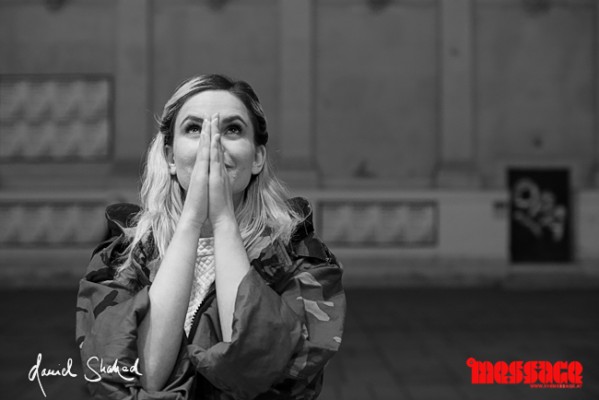 Have you built your connection to Bilderbuch also via the internet?
Have you built your connection to Bilderbuch also via the internet?
No, but that was really weird for me. I did not know them before, because they sing in German. My manager built the connection to them. It was pretty surprising, because before I heard that I am going to join them on the whole tour, I did not know anything about them. I had no idea how big they are. At the end it was fucking amazing, the tour was sold out. They are stunning people, really nice guys. Their music is different from the stuff that I make, I don’t think that what I do is their thing and vice versa. But it was interesting to see a really good live band. And it was fantastic to see them perform. I almost felt that their songs are better live than on the records. The energy is unbelievable. I have learned a lot from them. The singer is a star, the way he is communicating with the people is just great. He simply has this star quality.
Some people call him the “Austrian David Bowie”.
Really? But I think that this fits very well. He has this freaky attitude. People are asking themselves if he is gay or straight. He is playing with your mind and I like that. He is really fresh, I wish I would understand the lyrics [laughs].
What do you think when people comparing you to M.I.A.?
I love her. I grew up listening to her music and I think she is fucking amazing. She was also I big influcence on the visual side. But I believe that there are not many artists that like it when they are compared to other artists. On the other hand: If it is her what you are comparing me to, than perfect. Better than when people say that I sound like Die Antwoord. I really appreciate what they do on the visual side, but I don’t like their music [laughs]. They are a good live band and I enjoy their shows, but I don’t listen to their music at home.
How important are visuals for you?
It’s a really big part of what I am doing. I have to commit that at some point I put too much effort on the visuals and lesser effort on the music. That was at a very bad time in my life. Generally, it means a lot to me because you can say so much through a music video. I feel that a lot of people do not see it at the same level as the music. That’s a pity.
What was the idea behind the cubes in the „Was It You“-video?
It was not my idea. I had a meeting with the director and we were talking about my life and how I’m really connected to the iPhone/digital-age. So he said that maybe we could create something like a contradiction. We had a lot of plants and live elements and stuck them in cubes – to create this contradiction. That was the whole idea. My boyfriend’s head is exploding [laughs]. I think he really captured what the song is about, so I let him do his thing.
Was it easy for you to let him do his thing?
[laughs] No, that was not easy for me. But I’ m working on this bad side of me [laughs] If you look at the Raw Tapes guys: They work all together, for them, it is normal. I am the complete opposite. It took me time, but it was completely worth it.
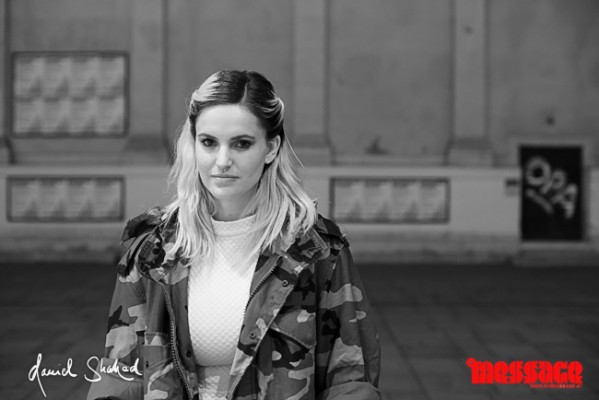
ADI ULMANSKY: FACEBOOK x TWITTER x INSTAGRAM x BLOG x SOUNDCLOUD
Ähnliche Posts
- "Srebrenica is the fault of the UN" // Edo Maajka Interview
There is something going on in South-Eastern Europe and who can tell us better about…
- The Story of a Long Lost Relative // DJ Werd Interview
DJ Werd ist seit Jahren eine Art "graue Eminenz" im deutschen HipHop-Geschehen. Aufgewachsen in San Jose,…
- Light, oxygen and voltage converted into music // The Child Of Lov Interview
At first nobody knew who or what collective stood behind "The Child Of Lov" -…

